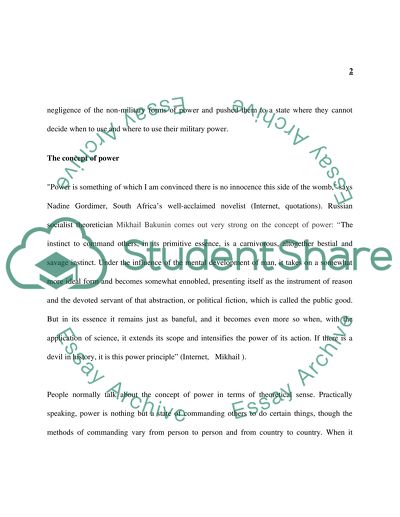Cite this document
(“The concept of power Essay Example | Topics and Well Written Essays - 3000 words”, n.d.)
The concept of power Essay Example | Topics and Well Written Essays - 3000 words. Retrieved from https://studentshare.org/politics/1499546-the-concept-of-power
The concept of power Essay Example | Topics and Well Written Essays - 3000 words. Retrieved from https://studentshare.org/politics/1499546-the-concept-of-power
(The Concept of Power Essay Example | Topics and Well Written Essays - 3000 Words)
The Concept of Power Essay Example | Topics and Well Written Essays - 3000 Words. https://studentshare.org/politics/1499546-the-concept-of-power.
The Concept of Power Essay Example | Topics and Well Written Essays - 3000 Words. https://studentshare.org/politics/1499546-the-concept-of-power.
“The Concept of Power Essay Example | Topics and Well Written Essays - 3000 Words”, n.d. https://studentshare.org/politics/1499546-the-concept-of-power.


